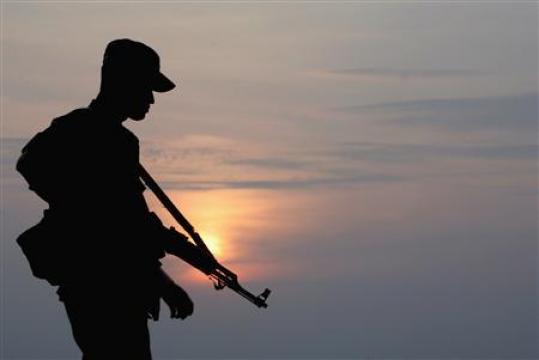Australian police were Monday examining a war crimes dossier alleging Sri Lankan authorities bombed and shelled civilians during the country’s civil war, which ended in 2009.
Prepared by the International Commission of Jurists’ Australian chapter, the brief contains testimony from Sri Lankans now living in Australia that they were attacked by government forces during the conflict.
“The substance… is eyewitness evidence which shows the bombing and shelling of civilians, in particular in the no-fly zones, and a whole series of attacks on civilians, contrary to the stance taken by the Sri Lankan government that, in effect, they were not targeted,” said ICJ Australia president John Dowd.
“Initially they said there was no loss of civilian life in the last few months (of the conflict), which is clearly nonsense,” he added.
The evidence was initially collected for an independent war crimes tribunal but because one had not been established Dowd said the ICJ decided to pass it to Australian police “who have the power to investigate such matters.”
Police confirmed they had received the submission and were reviewing it.
“Therefore it is not appropriate to comment further,” a spokeswoman told AFP.
Australia can prosecute war crimes committed in other countries including “acts of torture committed outside Australia by a public official, or a person acting in an official capacity or at the instigation of such a person,” she added.
Dowd denied local media reports that the brief named President Mahinda Rajapaksa and former Navy chief Thisara Samarasinghe, now Sri Lanka’s High Commissioner to Australia.
“We haven’t talked about anybody, and we’ve not identified anybody, nor do we intend to in our submission,” Dowd said.
“We have set out the evidence that is available and that evidence is a matter for the Australian Federal Police. It is a matter for them… to comment on who might be the person they investigate.”
Samarasinghe did not immediately respond to AFP’s requests for comment, but strongly denied any crimes when contacted by the Sydney Morning Herald.
“There is no truth whatsoever of allegations of misconduct or illegal behaviour,” said Samarasinghe.
“The Sri Lanka Navy did not fire at civilians during any stage and all action was taken to save the lives of civilians from the clutches of terrorists.”
Sri Lanka has persistently denied that its troops committed any war crimes while battling the Liberation Tigers of Tamil Eelam (LTTE), who were crushed in an offensive that ended in May 2009, bringing the 26-year conflict to a close.










